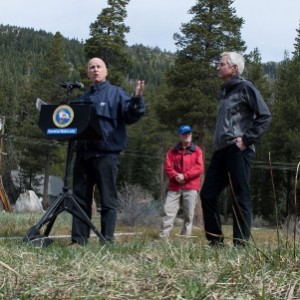The Stream, April 1: Hospitals in Poor Countries Lack Water, Sanitation, and Soap
The Global Rundown |
Hospitals fail to meet international water and sanitation standards. A city reliant on groundwater sees levels drop while illegal sand mining threatens water supplies in southern India. Desalination is more attractive for a gold mine proposed in Mexico after a water-price hike. Protestors in Baltimore oppose a plan to shut off water service.
“We’re in a state of shock and outrage. People aren’t paying their water bills, because they can’t afford to.” — Sharon Black, who organized a protest against a plan to shut off water service in Baltimore, Maryland, for residents and businesses with overdue water bills. Some 25,000 accounts owing at least $US 250 or are six months behind in payment are being targeted. (Baltimore Sun)
By The Numbers |
1.6 million — People in Kulna, a city in Bangladesh that relies entirely on groundwater. A drop in groundwater tables has city officials worried about summer water supply. Dhaka Tribune
Science, Studies, And Reports |
Many hospitals and other healthcare facilities in poorer countries do not have the basic health tools of clean water, sanitation, and soap, according to a World Health Organization study. By looking at data from 54 countries, researchers found that 38 percent of facilities did not have a water source that meets United Nations standards. Some 19 percent failed to meet sanitation standards, and 35 percent did not have soap for washing hands.
More data, especially at the local level, better planning, and stronger international collaboration between businesses, states, cities. Those are three recommendations from a Wilson Center report on responding to the collision between water supplies, energy development, and food production in China.
On The Radar |
After the national water supplier double water prices, the mining company Chesapeake Gold is considering desalination to supply a gold mine that is proposed for Mexico’s Durango state. BN Americas
Illegal sand mining is worsening a water crisis in several villages in southern India. Sand, a valuable but underappreciated resource, is in high demand in Asia. The Hindu
Brett writes about agriculture, energy, infrastructure, and the politics and economics of water in the United States. He also writes the Federal Water Tap, Circle of Blue’s weekly digest of U.S. government water news. He is the winner of two Society of Environmental Journalists reporting awards, one of the top honors in American environmental journalism: first place for explanatory reporting for a series on septic system pollution in the United States(2016) and third place for beat reporting in a small market (2014). He received the Sierra Club’s Distinguished Service Award in 2018. Brett lives in Seattle, where he hikes the mountains and bakes pies. Contact Brett Walton







Leave a Reply
Want to join the discussion?Feel free to contribute!